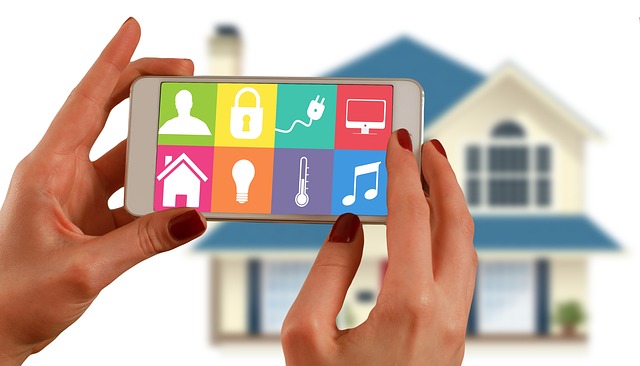What is Hybrid Working? Hybrid working is a new way of working that combines the advantages of a conventional office environment with those of mobile solutions. It allows employees to work in their locations using the same software and tools in an office.
Hybrid work also allows companies to improve productivity by giving employees more flexibility. This can be especially useful when employees work in different locations, as they can work at any time and from anywhere.
Hybrid work also allows companies to create a work culture focused on communication and teamwork, allowing them to better communicate with and coordinate their employees.
Hybrid working is an excellent way for companies to reduce costs, improve productivity, and create a work culture that promotes teamwork. If companies use this technology correctly, they can achieve some valuable benefits.
Table: Hybrid Working models from flexible to static
Hybrid working models: what forms are there?
| Place of work | Fix (9 to 5) | Partially flexible | Fully flexible |
|---|---|---|---|
| Office first (less than 4 days of home office per month) |
Classic office | Semiflex Office | OWA: Office Work Anytime |
| Synchronous Hybrid | Synchronous | Semi-flex synchronous | nonsensical |
| Static Hybrid | Static | Semi-flex static | Fully flexible static |
| Fully flexible | WFA: Work from anywhere | Semiflex WFA | WFAA: Work from anywhere at any time |
| Home Office first (less than 4 days of office per month) |
Home office “9 to 5” | Semiflex Home Office | Anytime Home Office |
What are the characteristics of these hybrid working models?
-
Office first
There is rarely a home office. During working hours, employees can be found in the office at fixed times (classic model), partially flexible times (semiflex), or completely arbitrary times (OWA) in the company.
-
Synchronous hybrid
It goes in an orderly manner: a plan records precisely which days work is being done in the company and which days in the home office. The working hours are fixed (synchronous) or partially flexible (semi-flexibly synchronous) and regulated.
-
Static hybrid
The employees decide whether to work in the home or company offices. However, working hours can vary from fully flexible to completely rigid.
-
Fully flexible
WFA is the magic word. It says that you can work from any workplace. And employees are free to make decisions every day. Working hours are regulated independently, depending on what is needed by the company. Fixed times (WFA) are just as possible here as a partially flexible classification or the “full chaos” with WFAA.
-
Home office first
Working from home is the standard. However, workers can choose their working hours, which can be fixed (9 to 5) or fully flexible.
Modern office concepts
In today’s modern world of work, some concepts help to improve productivity and comfort. Some of these concepts have been specially developed for the office to create a pleasant and efficient environment for employees.
The open-space concept
One of the most popular modern office concepts is the open space concept. This concept allows employees to use the premises without having to tie themselves to a specific workplace. This will enable you to move freely and work in different places. In addition, more interaction between employees is encouraged.
The activity-based working concept
Another modern office concept is activity-based working. This concept is based on the principle that employees choose their workplace according to their activity. This means you can do your work in the most convenient place. This concept gives employees more flexibility and allows them to free-reign in their creativity.
There is also the hot desk concept. This concept allows employees to use an everyday workplace accessible to everyone, allowing for greater mobility and flexibility, as the workplace must not be occupied permanently.
The home office concept
Finally, there is also the home office concept. This concept allows employees to work from home, flexibly doing their work and saving time and money.
These modern office concepts offer several advantages that make work more efficient and productive. They help employees focus on their work and improve their comfort at the same time.
Frequently Asked Questions About Hybrid Work.
What does “hybrid work” mean?
Hybrid work refers to a hybrid form of physical work and remote work. It is a model where employees work partly in the office and partly from home. Hybrid work allows companies to maximize the advantages of office and remote work. This working model will enable companies to create more flexible working conditions that support a better work-life balance and higher productivity and commitment.
What is “open space”?
Open space is a type of meeting that creates a discussion-based environment where participants can collaboratively develop ideas and solutions. It is a free and open atmosphere that allows participants to express themselves freely and give space to their thoughts. In contrast to other conference forms, an open space takes place in an open round in which each participant has one vote. The main focus is that all participants share their ideas and thoughts and listen to each other. There is also the possibility of different groups working together on specific topics.
What modern office concepts are there?
-
Open-space office
An open space where employees work together in groups.
-
Activity Based Working (ABW)
An office concept in which employees can use different work areas, depending on the type of work they need to perform.
-
Flexible workplaces
A concept in which employees can work in different places, e.g., at home, in the office, or in a café.
-
Smart Office
A concept in which technology and software are used to optimize the workflow.
-
Coworking areas
Several companies use common spaces to collaborate and network.
-
Mobile work
A concept where employees can work on laptops and tablets while on the go.



